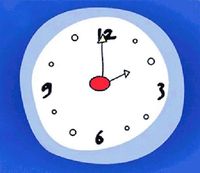This weekend, the Netherlands will once again transition into summer time, a change that brings longer daylight hours and a sense of anticipation for the warmer months ahead. As the clocks spring forward, many are left wondering: will this be the last time we adjust our clocks, or is the proposal to abolish daylight saving time still on the table?
Published on March 28, 2025, the latest updates confirm that the clocks will move forward one hour in the night from Saturday, March 29, to Sunday, March 30, 2025, at 02:00 AM. This means that when the clock strikes two, it will jump ahead to three, resulting in a loss of one hour of sleep for many. However, those working night shifts may find some solace, as they will only be on the clock for a shorter duration.
As the country prepares for this biannual ritual, it’s worth noting that the proposal to abolish summer and winter time has been placed on hold. Discussions about keeping the current system have been ongoing, but the Dutch government has decided to wait for a consensus among neighboring countries before making any final decisions. For now, the tradition of adjusting the clocks twice a year remains intact.
The practice of changing the clocks has been a part of life in the Netherlands for years, and many have developed tricks to remember which way to turn the hands. A popular mnemonic is: “In the VOORjaar gaat de klok een uur VOORuit,” which translates to “In spring, the clock goes forward one hour.” This clever phrase helps many navigate the confusion that can come with the transition.
Daylight saving time not only affects when we wake up, but it also changes the dynamics of our evenings. With the extra hour of daylight in the evenings, people can enjoy more outdoor activities, whether it's dining al fresco or taking evening strolls. The longest day of the year, June 21, will see daylight lasting until around 10:00 PM, with sunrise occurring at approximately 5:20 AM. This shift is celebrated by many as a herald of summer.
Despite the benefits of longer days, the debate over whether to abolish the clock adjustments continues. While some countries have moved to eliminate the practice altogether, the Netherlands remains in a holding pattern, largely dependent on the decisions made by its neighbors. The government has indicated that it will only take a stance on this issue once there is clarity on how surrounding nations plan to proceed.
As we gear up for the change, it’s essential to remember that while many electronic devices, like smartphones and computers, adjust automatically, traditional clocks and alarms will require manual changes. This can lead to confusion, especially for those who forget to set their clocks forward. To prevent any mishaps, it’s advisable to check all timekeeping devices ahead of the weekend.
In summary, while the arrival of summer time brings excitement and longer days, it also serves as a reminder of the ongoing discussions about timekeeping practices in the Netherlands. For now, the clocks will continue to turn twice a year, and the nation will embrace the extra daylight as it welcomes the summer season.
As the clock changes this weekend, make sure to enjoy the longer evenings and the opportunities they bring. Whether it’s a gathering with friends or simply soaking in the sun, the arrival of summer time is a moment to celebrate.









